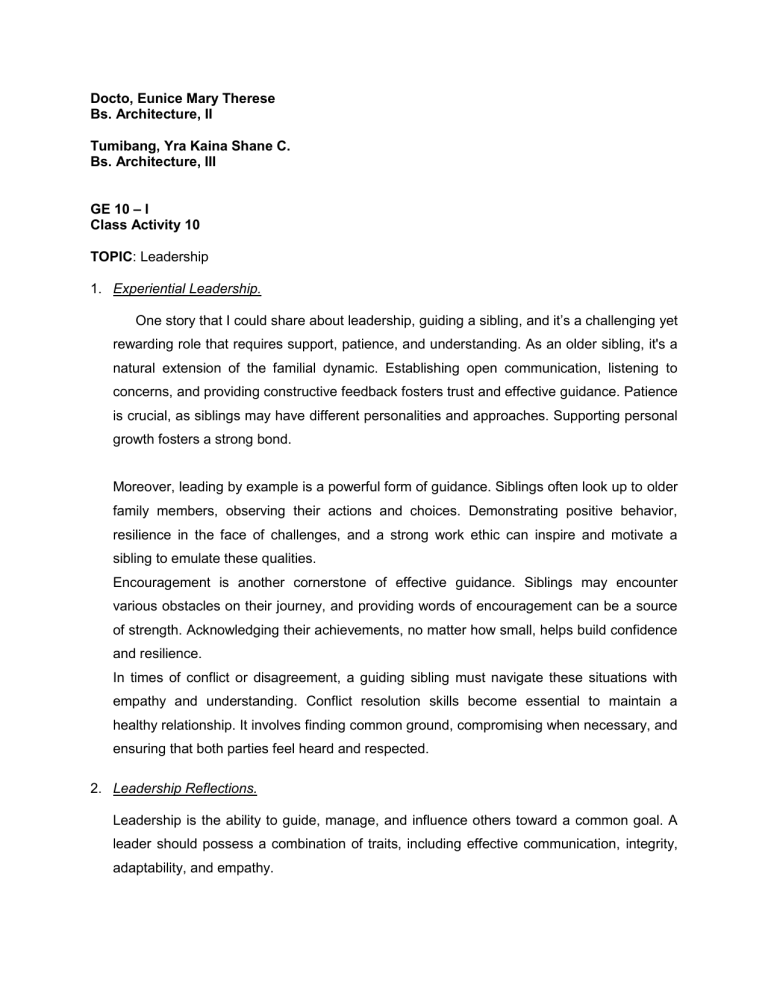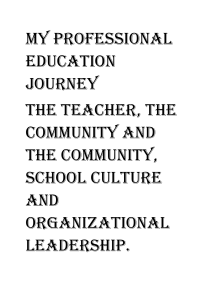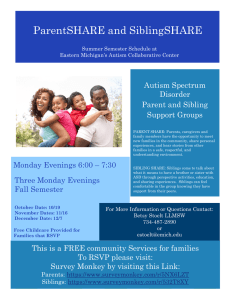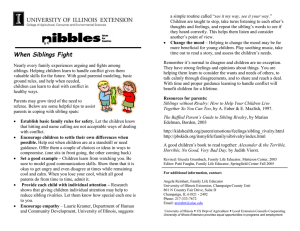
Docto, Eunice Mary Therese Bs. Architecture, II Tumibang, Yra Kaina Shane C. Bs. Architecture, III GE 10 – I Class Activity 10 TOPIC: Leadership 1. Experiential Leadership. One story that I could share about leadership, guiding a sibling, and it’s a challenging yet rewarding role that requires support, patience, and understanding. As an older sibling, it's a natural extension of the familial dynamic. Establishing open communication, listening to concerns, and providing constructive feedback fosters trust and effective guidance. Patience is crucial, as siblings may have different personalities and approaches. Supporting personal growth fosters a strong bond. Moreover, leading by example is a powerful form of guidance. Siblings often look up to older family members, observing their actions and choices. Demonstrating positive behavior, resilience in the face of challenges, and a strong work ethic can inspire and motivate a sibling to emulate these qualities. Encouragement is another cornerstone of effective guidance. Siblings may encounter various obstacles on their journey, and providing words of encouragement can be a source of strength. Acknowledging their achievements, no matter how small, helps build confidence and resilience. In times of conflict or disagreement, a guiding sibling must navigate these situations with empathy and understanding. Conflict resolution skills become essential to maintain a healthy relationship. It involves finding common ground, compromising when necessary, and ensuring that both parties feel heard and respected. 2. Leadership Reflections. Leadership is the ability to guide, manage, and influence others toward a common goal. A leader should possess a combination of traits, including effective communication, integrity, adaptability, and empathy. Communication skills are crucial for conveying vision and goals clearly, fostering collaboration, and addressing challenges. Integrity builds trust, a cornerstone of effective leadership. Adaptability allows leaders to navigate changing environments, while empathy helps understand and connect with team members, fostering a positive and inclusive workplace. Additionally, a leader should demonstrate decisiveness to make timely choices, accountability for their actions, and resilience to overcome setbacks. Effective delegation and the ability to inspire and motivate others are also essential for a successful leader. 3. The Sillimanian Leader. Sillimanian leadership refers to the traits or style of leadership exhibited by people who attended the Silliman University. Through its educational program, Silliman University is renowned for upholding ideals like honesty, quality, and service. Leadership that is Sillimanian is frequently characterized by a strong sense of community, moral judgment, and a dedication to improving society. It might also include qualities like teamwork, sensitivity, and a commitment to continuous learning and development. 4. Principles for Lifelong Learning. Principle 1: Curiosity as a Driving Force Cultivate and sustain a curious mindset. Embrace the joy of discovering new information and perspectives, fostering a proactive approach to seeking knowledge throughout life Principle 2: Adaptability and Flexibility Recognize that the world is dynamic, and knowledge evolves. Develop the ability to adapt to change, embrace new technologies, and adjust your learning strategies to stay relevant in an ever-changing landscape. Principle 3: Continuous Reflection Regularly reflect on your learning journey. Assess your goals, interests, and achievements. This self-awareness enhances the effectiveness of your learning process, allowing for adjustments and refinements to your lifelong learning plan. Principle 4: Diverse Learning Modalities Embrace a variety of learning methods. Mix traditional approaches with modern technologies, engage in experiential learning, and seek diverse sources of information. This versatility enhances your ability to grasp and retain knowledge effectively. Principle 5: Collaboration and Networking Recognize the value of learning from others. Engage in collaborative efforts, participate in discussions, and build a network of diverse individuals. Sharing insights and experiences enriches your learning journey and exposes you to a broader range of perspectives.



